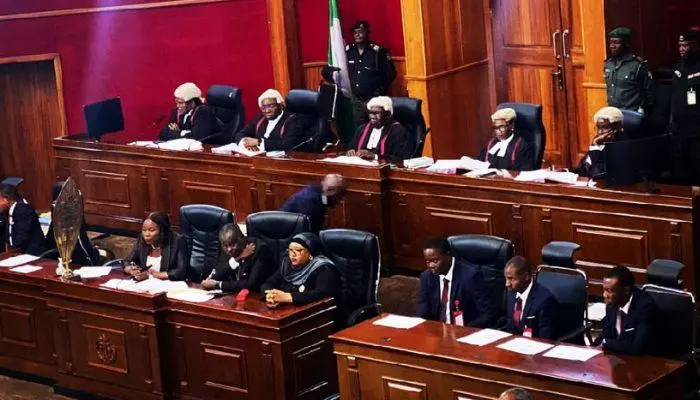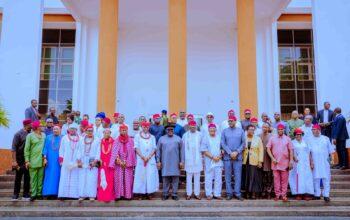Election Tribunals To Shut Down Following Subsidy Removal, As JUSUN Mobilises Members Towards NLC Strike.
The 2023 Presidential Election Petition Courts sitting at the court of Appeals in the Federal Capital Territory Abuja and other election petition courts sitting across the 36 States of the federation would be shut down this week as the Judiciary Staff Union of Nigeria (JUSUN) announced that it would join it’s parent body, the Nigeria Labour Congress NLC in an industrial action over the removal of subsidies on petroleum products.
News Direct had reported that during his inaugural address on May 29, 2023, President Bola Tinubu announced the end of the fuel subsidies, a move that immediately set the country on dire economic straits as the prices of the product jumped from N200 to between N500 and N1,000 at Filling Stations across the country.
Atiku Abubakar of the Peoples Democratic Party and Peter Obi of Labour Party are both challenging Mr Tinubu’s declaration as president at the Presidential Election Petitions Tribunal in Abuja. Other tribunals hearing cases ranging from state assembly elections to governorship poll disputes are also expected to be affected by the strike, which begins Wednesday.
The judicial workers’ union in a memo dated June 3 said its members would proceed on a solidarity protest strike with the Nigeria Labour Congress, the largest workers affiliate, on Wednesday.
“This is to inform all branches and chapters of our great union across Nigeria to begin mobilisation for a nationwide action and withdrawal of service,” the memo, shared with Peoples Gazette late Sunday, said.
Isaiah Adetola, one of the JUSUN executives who signed the memo, told The Gazette in a follow-up exchange that the strike would affect all judicial workers, and the Presidential Election Petitions Tribunal will have to shut down.
“We cannot watch as Nigerian poor masses are dying on the streets because a government said there will be no going back on subsidy removal,” Mr Adetola said. “That cannot be a realistic or acceptable situation for the Nigerian workers.”
Mr Adetola said Nigerian workers are not necessarily against removing subsidies on petrol, which have been in place since 1970s, but decried the manner with which Mr Tinubu ordered the policy. Millions of Nigerians are expected to be plunged further into poverty as food prices shoot up across the country.
JUSUN, with over 120,000 members, is the latest union from a critical sector to join the budding industrial action led by the NLC.
Over the weekend, the National Union of Electricity Employees also informed its members to withdraw services in protest against fuel subsidy removal.
Former President Muhammadu Buhari, who vacated office on May 29, had planned that subsidies on petrol would expire by the end of June, eliminating provisions for the critical policy in the 2023 budget.
Mr Tinubu, an ally of Mr Buhari’s who had vowed to continue the ruling APC’s policies, swiftly embraced the policy, pronouncing in his inaugural speech on May 29 that “subsidy is gone”. His pronouncement triggered panic across the country as citizens rushed to buy fuel while oil marketers suddenly increased pump prices.
Mr Tinubu argued that subsidies on petroleum have, over the decades, benefitted Nigeria’s rich and upper working class to the detriment of the poor. He vowed to divert savings from the removal to shore up infrastructure spending, as well as poverty-alleviation initiatives that target the country’s masses.
On May 31, the Nigerian National Petroleum Corporation (NNPC) announced pump price increases that saw a jump from N195 per litre to over N500 nationwide.










